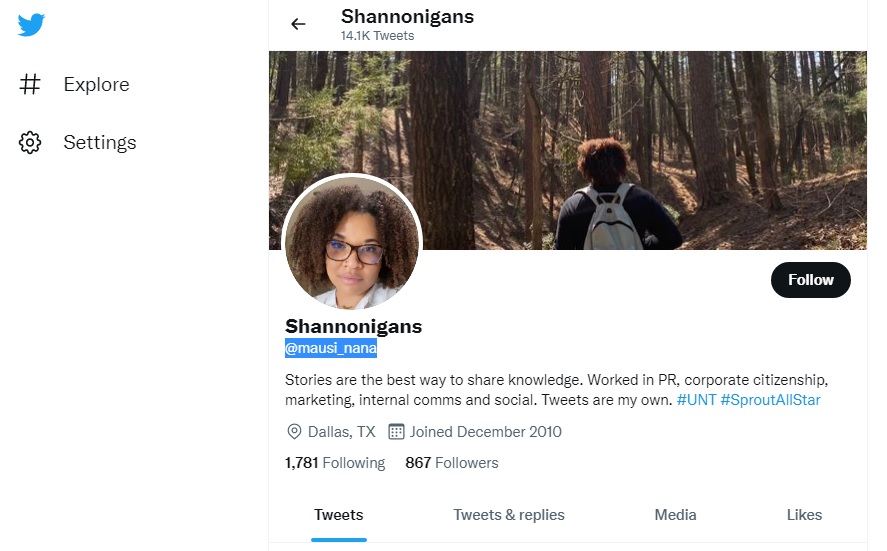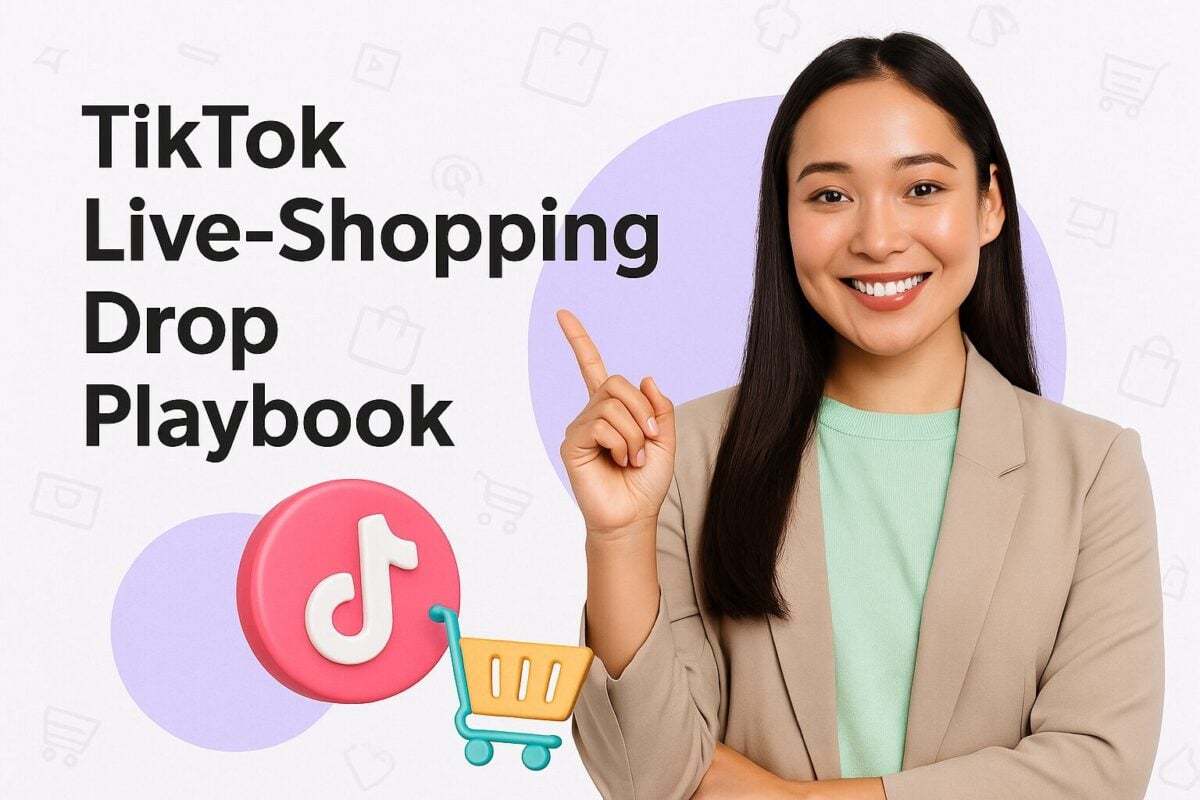Stories have always been one of the most effective ways to connect with people. This desire to share one's story and be surrounded by listeners is what makes social media so powerful. Today, brands are building alliances with these “storytellers” on social media to move forward with their marketing strategies.
- Who and What Are Brand Ambassadors?
- What Do They Do?
- Top Characteristics of a Brand Ambassador
- Are They the Same as Influencers?
- How to Become a Brand Ambassador
- Choose your main platform
- Write a captivating social media profile
- Develop a marketing acumen
- Determine which brands you'd like to speak up for
- Upload eye-catching content
- Stay active on social media
- Start connecting with brands
- Share your e-mail address or set up a sponsorship page
- Frequently Asked Questions
Who and What Are Brand Ambassadors?
Brand ambassadors have a passion for your product and promote your brand to family and friends by word-of-mouth. They may be regular customers who have become so in love with your product or product line that they enthusiastically endorse it to others after getting to know your brand so well.
What Do They Do?
Product "fans" who get tapped to represent the product or service as brand ambassadors have the following responsibilities:
-
Brand awareness
Ambassadors represent the brand in a positive light online and in person to naturally establish brand recognition.
-
Content creation
Ambassadors are expected to assist the brand in providing online content other than personal social media posts, such as reviews, posts, and blogs. Ambassadors should be ready to assume the role of expert or opinion leader regarding the product or service they endorse.
-
Feedback management
As the face or real-life extension of a brand, ambassadors should facilitate communication with the brand by listening to consumers' comments and suggestions.
-
Live appearances
Ambassadors are also likely to take part in marketing events, such as product launches, conferences, and so on. They can even be involved in helping organize them.
Top Characteristics of a Brand Ambassador
Companies who are searching for brand ambassadors for their product or service are looking for people with these qualities:
-
Understanding and appreciation of marketing
While it's not a requirement for brand ambassadors to have a marketing degree or business, companies are likely to prefer individuals with a grasp of core marketing principles. This includes familiarity with digital strategies and campaigns. Ambassadors should be highly aware of the importance of authenticity and transparency in drawing high-quality leads and referrals.
At the same time, they're expected to be knowledgeable of the local market's values and culture. Ambassadors should also be able to dive deep into the brand's history and values so that they can reflect these values and explain them to consumers.
-
Established web presence
Brand ambassadors don't necessarily have to have millions of followers. However, they're consistently available and actively engage with them. Followers deem them trustworthy and turn to them for advice.
Ambassadors are also proficient in the platforms they use, producing high-quality content. This enables the brand to pull in new customers and expand its reach.
-
Passion
To build excitement about a product or service, brand ambassadors should exude enthusiasm that will attract the public. Only a person who genuinely loves the brand can successfully convince others to do the same.
Ambassadors are the first to know everything about a brand's new offerings, as they're eager to share the "scoop" with their community. They're not out to make one-time sales but to nurture the good relationships between your company and the community they belong to, where they promote your goods.
-
Communication Confidence
Brand ambassadors best express their passion through communication. They're comfortable with getting their messages across clearly using the right words, body language, tone of voice, and look. They can also adapt their approach so that audiences of different types would want to listen.
Besides speaking on behalf of the brand, ambassadors also become a representative of consumers. Their interpersonal skills allow them to effectively collect feedback—and give their own. Plus, they can share or report their findings and insights with the company in a way that will help it perform better and keep it ahead of its competitors.
-
Professionalism
The language, behavior, and attitude of brand ambassadors will reflect on the organization they represent. Thus, they're temperate and advocate for a brand positively and consistently in all messages, platforms, and even offline.
Being professional also means having strong self-leadership. It's being reliable and showing up at events (no last-minute cancellations!). They're team players who can collaborate productively when changes occur, especially during promotional campaigns.
They can spot and engage with potential customers without your guidance. They're also natural leaders who can relate well with new brand ambassadors.
Are They the Same as Influencers?
Influencers have built a large like-minded following in a specific market due to their expertise in a niche topic. They're similar to brand ambassadors in that they have a community and speak with a voice of authority about a brand that they love. But they differ in the following ways:
-
Audience served
Brand ambassadors are a better fit for brands with an established customer base and needing authentic content. This is especially helpful for unique or complicated products and services with high price points. Ambassadors can weave brand endorsements into their social media that are based on their lifestyle, adventures, or topic-specific content. Brands issue ambassadors with unique discount codes or affiliate links that their followers can use.
Meanwhile, companies in their infancy can gain a lot from partnering with influencers. Brands can take advantage of an influencer’s many followers for the immediate exposure of their products or services.
-
Engagement level
Brand ambassadors usually have a smaller following that allows them to engage with their followers more. However, brand awareness is limited to this smaller audience size. Meanwhile, influencers have the chance to increase brand awareness due to their larger following, the lowest of which is 1,000 followers (nano influencer).
-
Voice
A brand ambassador uses the tone of a brand to communicate its messages. Meanwhile, influencers use their personal tone to tell their audience about a brand's offerings.
-
Nature of working ties with a brand
Individuals go through a brand's ambassadorship program to come under its wing. They get paid by entering under a work/employee contract or through commissions, discounts, or bonuses. Either way, they abide by certain guidelines.
In the case of influencers, it's the brands that reach out to form a partnership with them. Influencers may not have used a brand's product before contact. But brands choose to work with them for their reputation and ability to reach a target audience.
-
Duration of work relationship
Ambassadors exclusively recommend a "best product" within the industry for a few months or even longer with a brand.
Meanwhile, influencers are sought for their industry knowledge. As they can compare competing products on their platforms, most of their brand commitments are short-term, either a one-off campaign or a series of posts.
How to Become a Brand Ambassador
Choose your main platform
If you're starting out, pick one social media platform that you'll use for uploading content and communicating with followers. It's better to manage two or more platforms after you've grown your following in your main account.
Write a captivating social media profile

Source: twitter.com
When crafting your profile, you need to think about how you can make a brand out of yourself. After providing all your important personal information, such as your full name, location, and contact details, your bio should describe your niche—business, health, fashion, and so on.
It should also tell readers what makes you unique. You can even use a personalized hashtag that will represent you as a brand. Include factors that indicate why a brand would want to work with you and nobody else.
Develop a marketing acumen
The web has a wealth of resources for self or guided learning on marketing and digital strategies. Raise your market value by investing in education. This way, you can discover how to better know your audience and improve your engagement tactics, qualities that will make you attractive to brands.
Determine which brands you'd like to speak up for
You can only make positively honest statements about products and services if they support your lifestyle. So examine which brands you're currently buying from and ready to talk about online.
Note down what made you choose them over the others and if you have any personal criteria for selection.
Upload eye-catching content
Your feed should grab the attention of your existing followers, curious onlookers, and brands. Post content that the public can relate to.
Through continuous learning, you can be creative with the kind of content to post on your channel. Your writing, images, audio, and video uploads will become more polished and well-thought-out.
Stay active on social media
If content is king, then engagement is the queen. Ask your followers to share their opinions and experiences to nurture dialogue. Brands like people that others turn to for advice and enjoy exchanging messages with.
Besides engaging with your followers, aspiring brand ambassadors can conduct social listening to know what type of audience they have and what type of audience their favorite brand has. There are many tools available to help you with this smart marketing practice. They can help you create content that will draw the kind of audience that the brand is looking for.
You can also expand your reach by encouraging your followers to tell others about your channel. Networking with influencers is another way to further build your following. Brands are likely to tap people surrounded by a strong network.
Start connecting with brands
Once your social media account is ready and you've decided on the brand you'd like to promote, you can get in touch with the company to learn if it has a brand ambassador program and what its application requirements are. You can also sign up with agencies or platforms that connect ambassadors with brands.
Share your e-mail address or set up a sponsorship page
Let companies know that you're open to collaborations by including your email address in your social media profile and a link to your website, if you have one.
Those who have a website should have a sponsorship page where you can express what you can offer to potential clients. It should feature any past brand ambassador campaigns you joined and the brands you're currently working with.
Frequently Asked Questions
What Are the Key Steps to Becoming a Successful Brand Ambassador?
To become a successful brand ambassador, focus on these key steps:
- Build a personal brand by creating niche-focused content.
- Engage actively with your audience to boost trust and loyalty.
- Apply to legitimate brand ambassador programs that align with your values.
- Create authentic content that showcases the brand naturally.
- Maintain long-term relationships with brands by being reliable and passionate about their products.
How Important Is Follower Count to Becoming a Brand Ambassador?
While follower count can help, it's not the most important factor. Brands often prefer ambassadors with smaller but highly engaged communities. According to Reddit users, engagement, trust, and niche expertise matter more than having thousands of followers.
What Qualities Do Brands Look for in Ambassadors?
Brands seek ambassadors with:
- Passion for the product or service.
- A well-established and engaged online presence.
- An understanding of marketing principles, especially authenticity and transparency.
- Strong communication skills to represent both the brand and customer feedback effectively.
- Professionalism and reliability in both online and offline interactions.
How Do Brand Ambassadors and Influencers Differ?
Brand ambassadors usually have long-term, exclusive relationships with brands and focus on authentic, lifestyle-based promotion. Influencers, on the other hand, may work on short-term campaigns with multiple brands and use their personal tone and style to promote products to a larger audience.
How Do You Get Started as a Brand Ambassador on Social Media?
Start by choosing your main social platform, crafting a clear and captivating profile, and consistently posting engaging, niche-related content. Stay active by interacting with your followers, and reach out to brands or sign up with agencies that connect you to ambassador opportunities.



